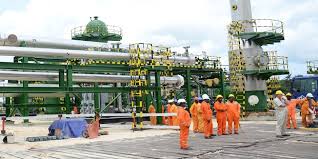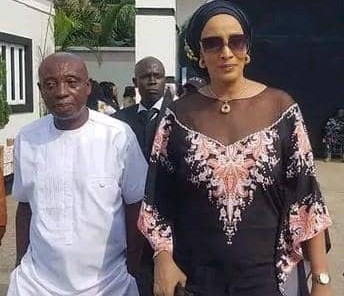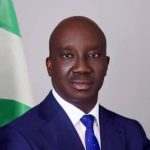Nigerians questions oil managing coy over missing N210 trillion

Nigeria
Nigeria’s oil wealth, managed by the Nigerian National Petroleum Company Limited (NNPCL), has been rocked by a staggering scandal involving N210 trillion unaccounted for over the six years from 2017 to 2023.
The figure emerged from a forensic audit scrutinized by the Senate Committee on Public Accounts in June 2025, triggering a fierce political and institutional crisis that has put President Bola Ahmed Tinubu—who also holds the Petroleum Minister portfolio—squarely in the eye of the storm.
At the center of this maelstrom is Bayo Ojulari, appointed as Group Chief Executive Officer (GCEO) of NNPCL on April 2, 2025. A mechanical engineer and former Managing Director of Shell Nigeria Exploration and Production Company (SNEPCo), Ojulari was heralded as a reformer, brought in by Tinubu to clean up the oil sector’s long-standing opacity and corruption.
However, barely four months into his tenure, Ojulari’s position became precarious. By early August 2025, explosive reports surfaced alleging Ojulari was coerced into signing his resignation on the night of August 1, under pressure from top officials of the Economic and Financial Crimes Commission (EFCC) headed by Chairman Ola Olukoyede and the State Security Service (DSS) led by Director-General Ajayi. The presidency and EFCC promptly denied these allegations, asserting Ojulari remains in office, but sources close to the matter confirm an intense behind-the-scenes power struggle tied closely to the ongoing investigations into the missing trillions.
The N210 trillion discrepancy cited by the Senate includes a massive N103 trillion listed as accrued expenses—covering retention fees, legal costs, auditing expenses, and other liabilities—and N107 trillion identified as receivables, all without adequate supporting documentation. The Senate, chaired by Senator Aliyu Wadada, demanded swift and detailed explanations from NNPCL, emphasizing the need for transparency but stopping short of outright accusations of theft. Despite this, public perception and civil society groups, notably Transparency International Nigeria and OilWatch, widely regard the saga as emblematic of entrenched embezzlement and systemic corruption at the heart of Nigeria’s oil sector.
Senate hearings were marked by tension. NNPCL officials repeatedly failed to appear, requesting extensions that the committee rejected outright. On June 27, 2025, the Senate threatened to issue an arrest warrant for Ojulari if he did not appear to answer questions by July 10. Such defiance fueled suspicions of institutional resistance to oversight, further inflaming public outcry. Ojulari’s exact whereabouts during these confrontations were unclear, and his briefings were often represented by subordinate officers, notably Chief Financial Officer Dapo Segun.
This scandal coincides with deeper investigations into multiple corruption cases plaguing the NNPCL’s management of refinery assets. The EFCC detained Umar Isa, a former NNPC Chief Financial Officer, linked to an alleged $7.2 billion fraud regarding the Kaduna, Warri, and Port Harcourt refinery rehabilitations. Despite billions allocated for these state-owned refineries’ turnaround maintenance, all three facilities have remained largely non-operational or underperforming. Reports detail misappropriation of funds and kickbacks involving former and current senior executives, including Mele Kyari and Abubakar Yar’Adua, previous GCEOs of NNPCL.
Within this climate of scandal and suspicion, Ojulari’s reform attempts reportedly antagonized entrenched oil oligarchs and powerful political factions benefiting from the opaque status quo. His moves to audit and reform internal contracts and fuel supply chains are said to have provoked fierce backlash. A further layer of intrigue involves Olatimbo Ayinde, a British-Nigerian oil businesswoman linked to ongoing cross-border bribery probes. Ojulari has publicly denied connections to Ayinde, but her name appears repeatedly amid the complexity of the scandals, suggesting international dimensions to Nigeria’s oil corruption crisis.
Tensions escalated following allegations of a $21 million (approximately ₦34.65 billion) corruption scandal tied to Ojulari’s immediate circle. Civil society groups have called for his prosecution, while others claim these charges are politically motivated to undermine his reform agenda. The presidency’s official stance remains ambiguous, alternating between denial of Ojulari’s resignation and rhetoric downplaying the scale of the crisis as distractions from ongoing sector reforms.
President Tinubu’s dual role as President and Petroleum Minister puts him in an unenviable position. Critics argue that the tradition of successive Nigerian presidents personally controlling the petroleum ministry fosters opacity and undermines independent oversight, sowing fertile ground for corruption. Tinubu’s response—marked by cautious statements and slow action—intensified calls for decisive leadership, transparency, and systemic reform across the sector. The scandal threatens to define his administration’s legacy amid Nigeria’s persistent struggles with oil wealth management.
Meanwhile, Nigerians face worsening economic conditions, with rising fuel prices, currency instability, and high unemployment. The missing N210 trillion, if recovered or properly accounted for, could dramatically improve infrastructure, healthcare, power supply, and education, fueling national development. Instead, the scandal reinforces a narrative of cyclical oil sector mismanagement, government opacity, and impunity.
The Senate’s probe continues to hold the spotlight. By early August 2025, the committee extended deadlines for NNPCL to answer 19 detailed audit queries. The outcome remains uncertain: no official proof of theft has yet been publicly declared, only the undeniable absence of credible accounting for vast sums. The unfolding drama encapsulates Nigeria’s enduring challenge—transforming immense natural resource wealth into genuine national prosperity requires more than audits and political reshuffles; it demands courageous leadership and unflinching accountability.
As Nigeria confronts this critical juncture, the NNPCL scandal mirrors a broader crisis of governance. The fate of Bayo Ojulari, the sincerity of President Tinubu’s reforms, and the integrity of institutional probes will resonate beyond oil fields and boardrooms, touching the lives of all Nigerians who await a future unclouded by corruption and decay.
This investigative overview is based on detailed developments reported between June and August 2025 by Nigeria’s Senate, EFCC, credible news outlets, and official government statements.









